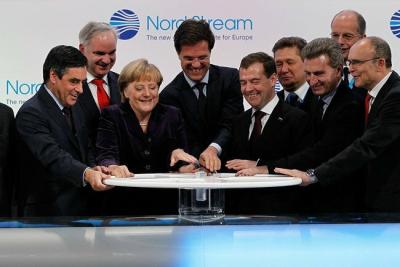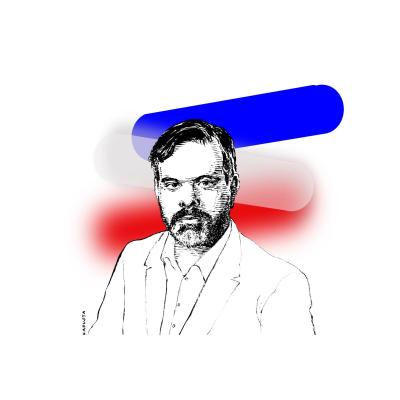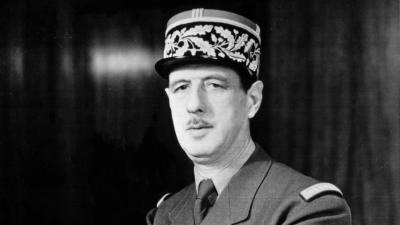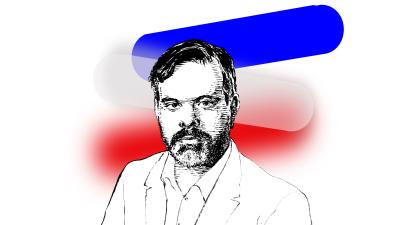For several months now, everyone has been wondering about the nationality of those who destroyed the two gas pipelines linking Russia to Germany. Were they American? British? Danish? Finnish? Norwegian? Polish? Swedish? Russian? Ukrainian? And why not French?
After all, it was France that had the most to gain from this destruction. Of course, this seems unrealistic, given the French elites' belief in the omnipotence of the "Franco-German couple" dogma. Until recently, Emmanuel Macron still believed in the infinite goodness of Germany. All the representatives of the French governing parties presented Germany as a benevolent power and an example to follow. None of them questioned the dogma of the 'Franco-German couple'. Although this dogma is still in vogue, since Russia's war with Ukraine there is no longer unanimity on this subject. Some people have finally realised that Paris has been fooled by Berlin, that while France was fully devoted to the "Franco-German couple", Germany was waging a merciless energy war against it. However, the French leaders still did not understand that this energy war was only one part of the economic war that Germany was waging on a large part of the European continent.
With the Nord Stream I pipeline, the Germans were able to benefit from cheap Russian gas in large quantities. Nord Stream I covered the equivalent of 55% of German gas consumption, and opening of the second pipeline Nord Stream II would have doubled the amount of Russian gas reaching Germany. With these two pipelines, all German needs would have been covered. It is important to understand that energy is the basis of any modern economy today. Without it, we cannot transport, produce, process or transmit anything. It was thanks to cheap Russian gas that Germany has established its economic hegemony over Europe, and it was with it that it intended to maintain it. Of course, Germany has the right to strive to have the most competitive and dynamic economy. The problem is that it has employed to this end a particularly malicious way, acting to the detriment of the European people.
Let's start with France. In the same year 2011, Nord Stream I is completed and Berlin decides to get out of nuclear power. From then on, Germany will do everything possible to destroy one of France's last competitive advantages: its nuclear industry, which guarantees the French relatively low electricity prices. Berlin then made considerable efforts, putting pressure on the French government, either directly (as in case of the closure of the Fessenheim nuclear power plant, close to the border with Germany) or indirectly via European regulations, the lobbying of anti-nuclear NGOs and French environmentalists, as Fabien Bouglé has shown very well. According to this French energy policy expert and author of the book "Nucléaire, les vérités cachées", Germany is leading a terrible offensive to destroy EDF ("Electricité de France" - the historical operator of the 58 French nuclear reactors). Last year, before a parliamentary enquiry commission, the former CEO of EDF, Henri Proglio, did not hesitate to accuse: "The German obsession for 30 years has been the disintegration of EDF. They have succeeded. The ransacking of the nuclear industry under the impetus of ecologists allied to Presidents Hollande and Macron from 2012 to 2022 will make France go from being Europe's leading electricity exporter to a net importer. Since the start of the war in Ukraine, France has begun to invest massively in nuclear power again and is expected to hire 10-15,000 people in this industry per year until 2030.
Central Europe, on the other hand, became aware much earlier of the danger posed by the German-Russian Nord Stream energy agreement, which was seen there as a symbol of injustice and domination. Not only did it bypass all the Eastern countries, but its capacity would displace the two pipelines currently passing through these countries, giving Russia a tool for blackmail. For the countries in this area, but also for the Scandinavian countries, this project would undermine European energy security. Moreover, from a legal point of view, it posed a problem, since the energy legislation defined by Brussels prohibited a company from extracting, transporting and selling gas at the same time. Despite this, Berlin maintained its plan, which would have allowed it to cover its annual gas needs via a single source of supply: the Russian company Gazprom. So when the Commission sued Poland and turned a blind eye to Germany's energy policy, which jeopardised the vital interests of the Eastern European countries, the latter saw this at best as an injustice, and at worst as German and Russian hegemony in action again. It is interesting to note that these countries are France's allies in Brussels in the 'nuclear war' with Germany. Indeed, the latter has not only waged an energy war against France, but also an economic war against the countries of Central Europe.
As I wrote back in 2017, in order to secure hegemony in intra-European trade and global leadership in trade surpluses, Gerhard Schröder and then Angela Merkel transformed Germany from a political dwarf on the international stage to the sole leader of the EU. Before the Covid crisis, Germany accounted for more than 20% of the world's trade surpluses (more than China's 14%), even though it represented 1.1% of the world's population. This share almost doubled since Merkel came to power. To achieve this, she implemented a mercantilist policy whose aim was to achieve the highest possible trade surplus, via a very utilitarian vision of her European partners. It was this utilitarian vision embraced by Germany that gave rise to the vassalization of France and the reduction of Eastern Europe to a production platform.
The challenge for Berlin is now to capture the maximum liquidity via an over-excessive trade balance. That is to say, as the economist Olivier Passet and the philosopher Pierre Manent explain so well, to remain THE prime industrial player in Europe via a vassalization of the latter. This means continuing to import quality intermediate goods on a massive scale, but at low cost, assembling them at home via high value-added operations and reselling them to the high-end segment. The above presently allows German companies to make comfortable margins and thus invest in innovation, training and wages. The European markets are in consequence less of an outlet for them than cheap suppliers. However, this policy condemns the other European countries, if they want to stay in the game, to a defensive strategy: margin compression, social plans, wage moderation. It is therefore absolutely necessary for Germany to constantly convince its partners in the EU that its policy is in their interest. The best example is the implementation of the German "Hartz" labour market reforms, which are becoming the norm in Europe. The unfairness of this policy makes it extremely difficult to sustain in the long term. Germany has no choice but to control the European administration (most of the EU's top posts are held by Germans). This headlong rush perverts the European project, because it forces German democracy to put Brussels under its thumb.
Thus, via the European administration, Germany has not only tried to destroy the French nuclear industry, but also to banish Poland, with the help of the French government, which often played the role of "bad cop" in Germany's interest, but to the detriment of its own. While Poland, a key element of German production, was gradually freeing itself from Berlin's tutelage, its wage costs were rising dangerously due to its staggering growth. Thanks to an effective smear campaign and the action of the European Commission, it is now generally accepted that European funds must be drastically reduced, which will result in a reduction in its growth and therefore its wage costs. This will benefit German industry and not French industry, which was beginning to become a little more competitive in the face of rising costs in the East.
It is impressive to see how geopolitical permanency has a hard edge. As I wrote in my article: De Gaulle would be pro-Russian today (LINK), General de Gaulle, in 1919, stated that it was a constant in history that Russia was a vindictive power of which Germany was a natural ally. In this context, Poland's best ally is France, because without Paris, Warsaw is at the mercy of Berlin and Moscow; and without Warsaw, Paris is at the mercy of Berlin. The German-Russian alliance has always been harmful to France, and if Ukraine loses the war, it will strengthen Russia, and therefore Germany, whereas anything that weakens this alliance is beneficial to France.
So, for all these reasons, you should understand why the destruction of Nord Stream was an incredible boon for France. It strengthened the country’s will to revive the French nuclear industry, and deprived Germany of its cheap Russian gas which had been the basis of its hegemony. It also deprived it of the temptation to return to its energy alliance with Russia to the detriment of the interests of Ukraine, France and the countries of Central Europe. For all these reasons, we can say that those who destroyed Nord Stream are heroes who deserve statues in their honour.
Photograph: Ceremony of opening of gasoline Nord Stream. Among others Angela Merkel and Dmitry Medvedev [source: www.kremlin.ru]
Read also
Would De Gaulle be pro-Russian today?
This question may seem incongruous to many of our European readers for whom the General is the symbol, like Churchill, of resistance to invasion, of refusal to submit to the law of the strongest. The Second World War showed us that there are two schools of thought when faced with an invader.
Patrick Edery
Interview with Loup Viallet
Russian imperialism seeks to take our continent in its stranglehold by destabilising our external borders. Putin is applying a strategy of chaos in which we are collectively the target.
Patrick Edery
Is France in a terminal phase of dechristianisation?
The situation of the Catholic Church in France is particularly worrying. The number of priests has been gradually decreasing for several years. In the early 1960s, there were 41,000 priests in office. In 1995, there were 29,000, and in 2020 half that number, or about 14,000. What is more, half of the French priests are over 75 years old. Every year now between 600 and 700 priests leave, and their departure is far from being compensated for by the few hundred new priests who take up their duties.














Comments (0)